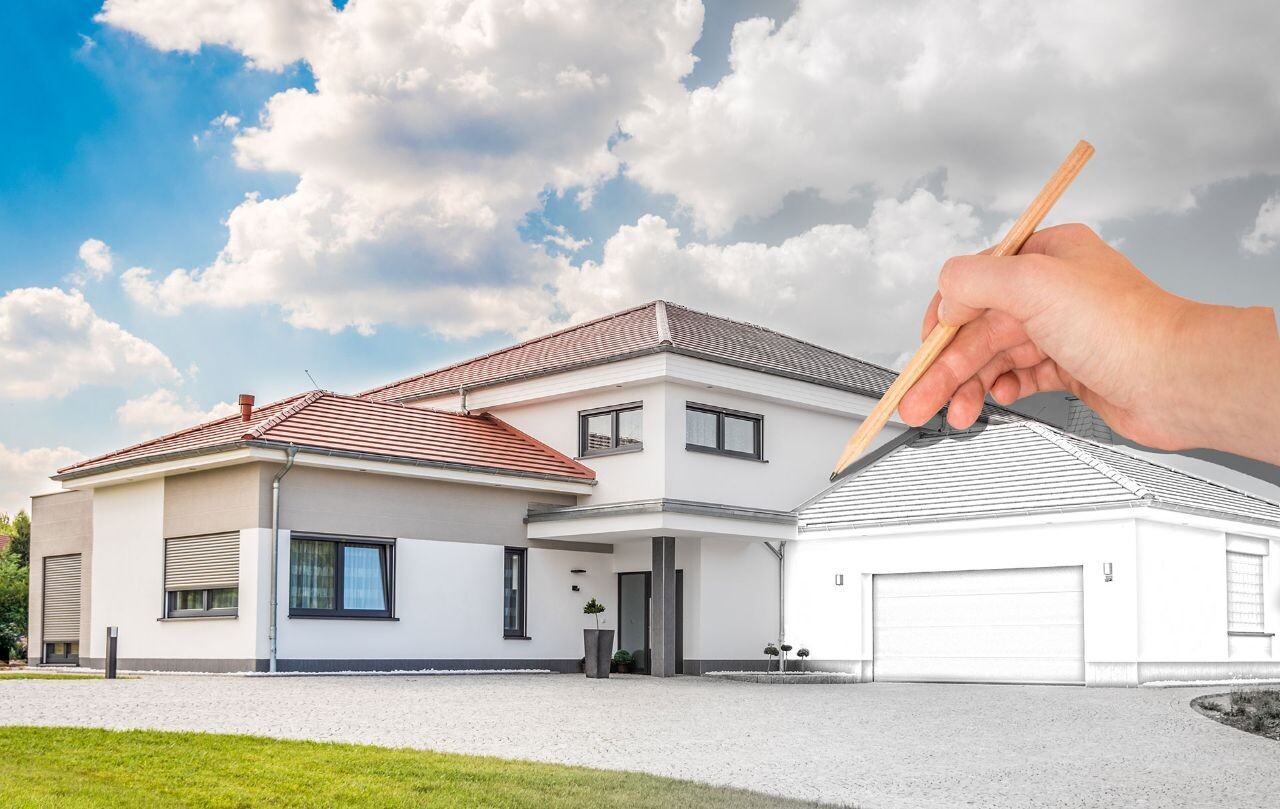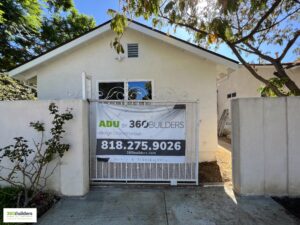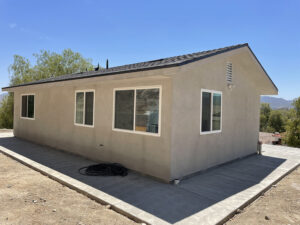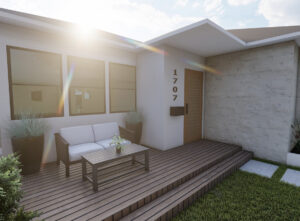If you want to add a 2nd unit to your house and don’t necessarily need it for extra space, Garage conversion in Los Angeles can be the ideal option. It’s straightforward to do but there are some rules that must be followed. If you’re planning on adding a 2nd unit in LA, whether it’s an in-law, guest house or live/workspace, this is a good place to start.
What Is a Legal 2nd Unit in LA?
A 2nd unit in Los Angeles (and most other cities) are additional living quarters that have been added to a single-family home after it was originally built. These units are also known as detached accessory dwelling units (ADU) or secondary suites. They can be just about anything from an in-law to a full apartment.
The most common 2nd units in Los Angeles are rear yard houses, backyard cottages and guest homes which are attached structures like carriage houses that have independent entrances and don’t connect directly to the main house. They can also be detached structures like a garage conversion or an accessory building that doesn’t have direct access from inside the primary home.
A legal 2nd unit must:
- Be located on the same property as your single-family home (or primary residence). It cannot be attached to another structure whose owner is not part of the same household.
- Be accessory to your primary residence, which means it must be attached or detached but not an independent structure such as a standalone house. Southern California has very specific zoning and land use rules about what constitutes an accessory unit. You cannot build a legal 2nd unit without obtaining prior approval from your local planning department and/or homeowner’s association.
- Be occupied by the owner of the primary residence or a tenant who has a lease agreement for at least one year (some localities require two years). If you don’t live in both units simultaneously, it cannot be considered a legal 2nd unit. Contact your local government to find out what they consider “occupation” to be.
- Contribute to the primary residence in terms of its utility and space efficiency. A 2nd unit must have independent kitchen, bathroom and sleeping facilities even if they’re very small (some cities allow a sink and microwave). It cannot simply be storage or an office that is occasionally used overnight as a guest room.
- Be at least 100 square feet in size but not more than 1,000 square feet (unless you live in an area where the maximum size is greater) *Have a separate entrance from the primary residence.
A 2nd unit may also be subject to HOA approval if it falls within certain guidelines. If it depends on your local building department and zoning laws, it’s a good idea to check with them before you start any work.
How To Add A Legal 2nd Unit in LA
If you’re thinking about adding a 2nd unit in Los Angeles, there are some pretty strict guidelines that must be followed. The most important thing is finding the right ADU contractor in Los Angeles who understands what kind of construction will be allowed on your property, which should ideally have at least two parcels of land.
When you’re ready to build a legal 2nd unit in LA, the first thing you need to do is draw up a plan and obtain permits from your local planning department (Building & Safety or Planning). If you want to find out what will be allowed on your property based on your current use and zoning, ask a contractor or architect to help you review the zoning map.
You’ll also have to obtain the permits from:
- HOA (if applicable)
- County
- Public Works Department
The permit process can be lengthy so try to obtain them as early as possible in the beginning of your construction plan.
Both your local planning department and the HOA can help you find out if any provisions need to be made for parking, which will vary depending on the size of your 2nd unit.
The next thing you’ll want to do is hire an architect or designer who can help you with all the planning and building inspections required by the city. By law, you must have both a site plan and floor plan drawn up by an architect before any construction begins.
Once you’re all set with the permits from your city or county, it’s time to begin work on planning for your new 2nd unit. Before you get started, make sure that you choose a contractor who’ll be able to comply with all the requirements, otherwise you might have to tear down your 2nd unit and start over again.
When it comes to the costs involved in building a 2nd unit, you’ll want to make sure that you hire a reputable contractor who’s familiar with your local zoning requirements. The average cost of building an acceptable 2nd unit for parking purposes in LA is between $15-20 per square foot because part of it will be used exclusively for parking. Again, this will vary depending on your lot size and what components must be built. If you decide to build a 2nd unit that doesn’t meet the parking requirements, expect the costs to go up significantly.
Don’t forget about utility fees for your new 2nd unit. A typical California household spends $260 per month on electricity and another $60-70 per month on water. These costs will increase if you incorporate other appliances or entertainment components into your new 2nd unit. As far as the utility fees go, it’s a good idea to investigate what’s available in terms of solar panels and more efficient fixtures before you make any final decisions about construction.
What To Convert Your Garage Into
After you’ve added a 2nd unit on your property, what can you do with the original garage? You may want to consider having it converted into:
- A work-out room for the primary residence
- An office or utility closet
- A game room/family room If you don’t like any of these ideas, there are other options available to you as well.
- What else can I do with my 2nd unit?
If you fall into the category of people who just have a lot of stuff that they don’t need anymore (clothes, electronic devices, books or anything else), consider using your new 2nd unit for storage purposes. Most people end up throwing away old stuff, but you can convert your 2nd unit into a storage room by installing shelving or cabinets.
Know Your Zoning Restrictions
If you’re hoping to build an additional dwelling on your property, it’s important to know what kind of restrictions will apply to you. In most cases, the primary residence and its outbuildings must be following the following restrictions:
- All buildings must be at least 20 feet away from the lot line, including fences (Flower Mound)
- No more than two units can be on a single parcel of land in most jurisdictions (Bakersfield)
- The number of people living in anyone dwelling cannot exceed nine (Irvine)
- No household can contain more than 3 unrelated people (Irvine) or 6 total occupants (Palm Springs)
- All dwellings must have a street address and permanent foundation in some cases (Long Beach, San Diego)
If you want to build a 2nd unit as an investment to rent out, make sure that your local zoning laws aren’t going to stand in the way. For example, some cities won’t allow you to build a 2nd unit if your property is deemed zoned for single family usage only.
Be Mindful of Environmental Regulations
One thing that most zoning regulations have in common is an emphasis on environmental protection and sustainability. If you live in an area that’s prone to earthquakes, hurricanes or other extreme weather conditions, you’ll want to make sure that your 2nd unit is well-built and made of sturdy materials. This will cut down on maintenance costs over time and help your home withstand the test of time.
Other zoning requirements include a focus on energy efficiency. You may be required to install solar panels, insulation and other components that will allow you to cut down on the amount of electricity and water you use.
In most cases, a 2nd unit must be connected to your home’s main electrical grid in order to meet zoning requirements. If it isn’t, expect to pay a hefty fine for non-compliance with local laws.
There is a lot to be done when deciding to convert a garage into a legal 2nd unit. This article provided you with the information needed to get started. I hope it was helpful-best of luck!







